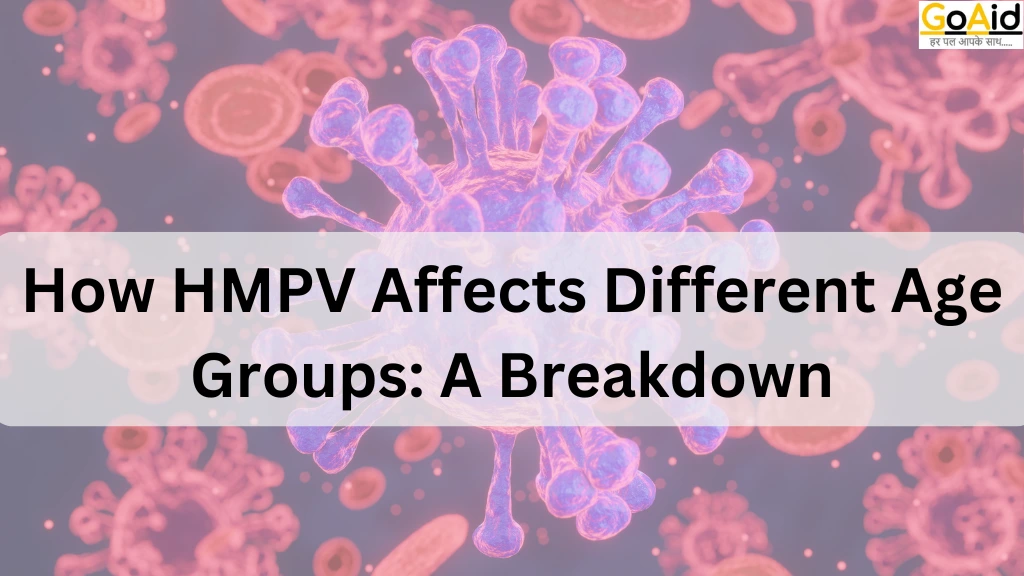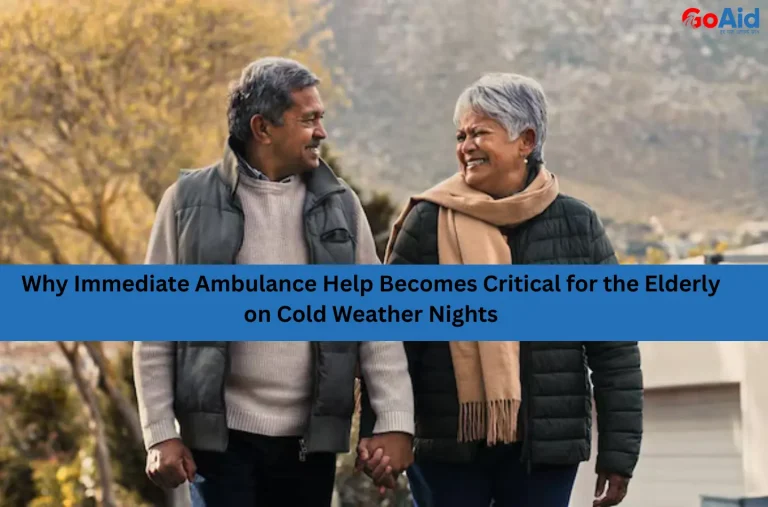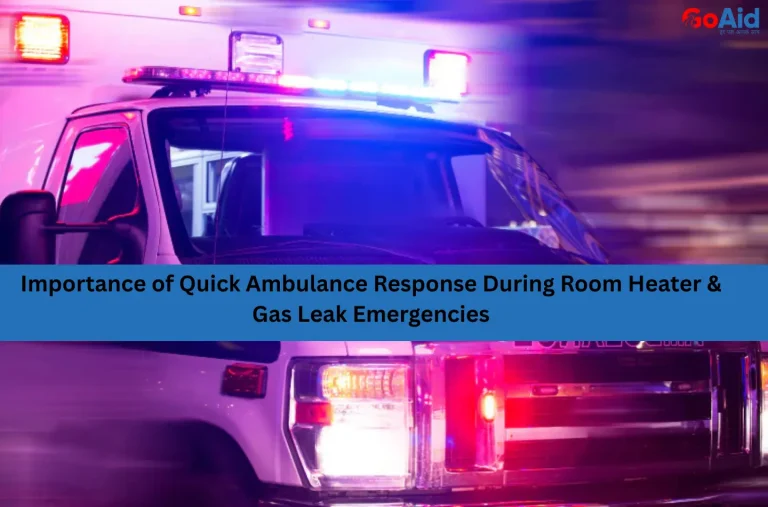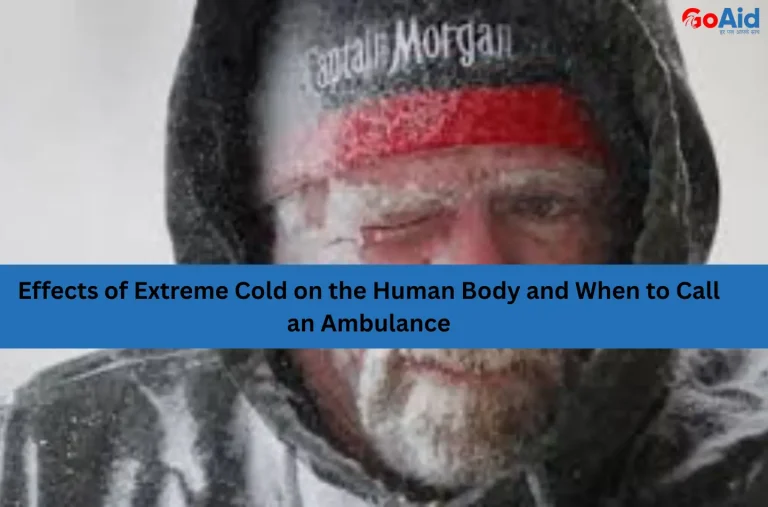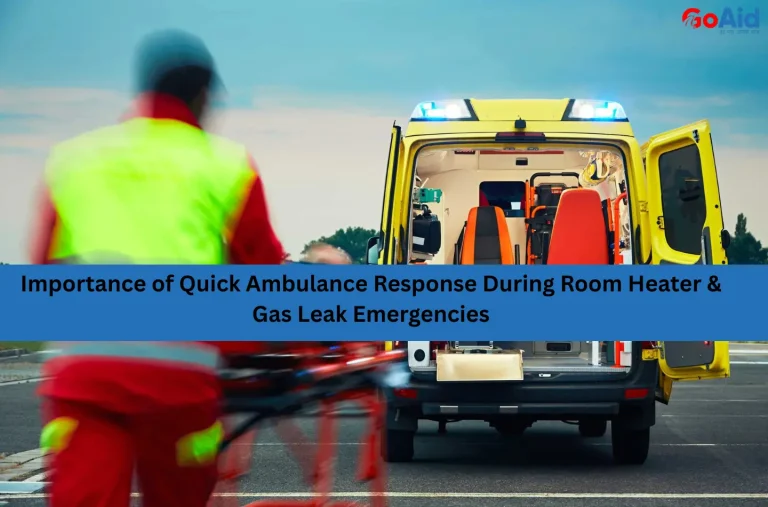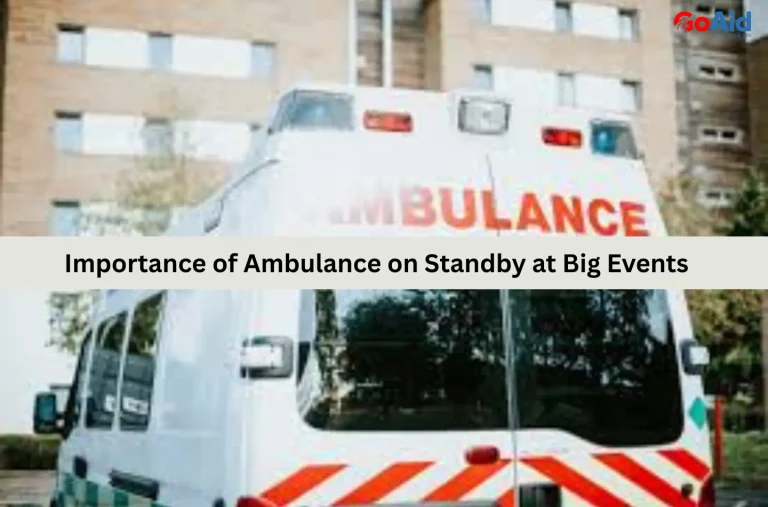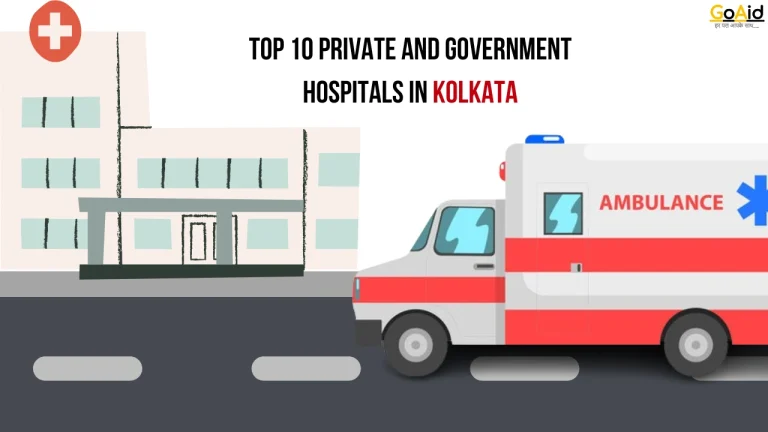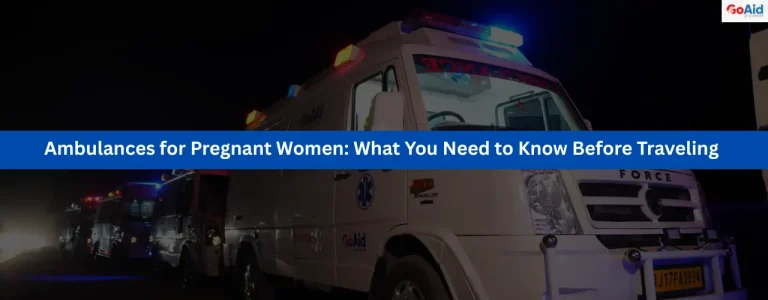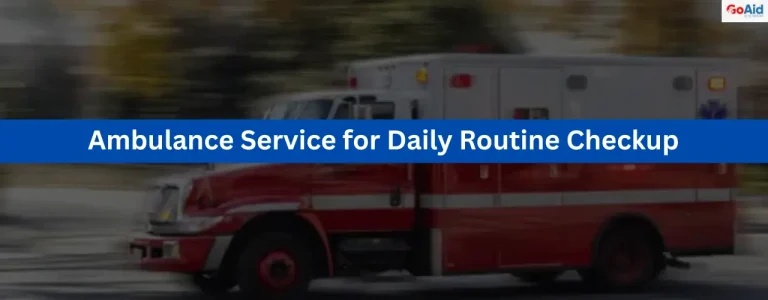Nowadays, we have seen the term ŌĆśHMPV VirusŌĆÖ roaming around our screens & many of us are scared of it as a result of the COVID-19 pandemic. However, WHO has said not to worry about it but knowing about it more and taking precautions is more than a better solution than any treatment.
Experts say that the HMPV Virus is not that fatal but still needs to be taken care of. This is why we will tell you how this virus can impact and affect different age groups. However, this article will be focused on providing information on ŌĆśhow the HMPV virus will impact different age groupsŌĆÖ, but if you have no idea about the HMPV Virus at all, then you can read our this blog to know all the details about HMPV Virus.
What is the HMPV virus? – Quick Reference
The full form of HMPV is Human Metapneumovirus (HMPV). HMPV virus is a type of respiratory virus. in our previous blog, we have explained all the key factors and components of the HMPV Virus. If you havenŌĆÖt read that blog, then please ensure you have read it for sure. Click this blog link ŌĆ£What is HMPV Virus?ŌĆØ to read the full blog.
How does HMPV affect different Age Groups?
Infants are highly sensitive to Human Metapneumovirus because their immune systems are still developing. Older children and adults have limited ability to fight off respiratory infections, making them more susceptible to severe illness. Premature infants and those with underlying health conditions are at even higher risk. Let’s know In detail How HMPV Affects Different Age Groups.
1. HMPV Virus in Infants
HMPV or any other infection mostly affects the elderly and infants. Let us know what effect the HMPV Virus in Infants and what is its treatment:-
Adaptability to the HMPV Virus in Infants
Babies are very likely to get sick from Human Metapneumovirus (HMPV) because their bodies aren’t good at fighting any type of germs yet. So infants are susceptible to this disease easily.
Potential Issues of the HMPV Virus for Infants
- Pneumonia ŌĆō A critical infection in the lungs can occur due to HMPV Virus in Infants that can lead to an oxygen shortage and may need a patient to be hospitalized.
- Dehydration ŌĆō Due to difficulty with feeding and heavy breathing, occurs, resulting in the need for intravenous fluids.
- Severe Respiratory Distress ŌĆō Due to HMPV Virus in Infants Increased frequency of breathing, excessive wheezing, and oxygen support to assist breathing.
- Bronchiolitis ŌĆō Inflammation and staggering of smaller passages within the lungs, causing major breathing challenges.
- Apnea ŌĆō The HMPV Virus in Infants can instigate perilous breathing stoppages in infants born prematurely, more so than in other infants.
- Secondary Bacterial Infections ŌĆō This may include ear infections, as well as bacterial pneumonia.
- Deterioration of Existing Problems ŌĆō Congenital heart disease or chronic lung problems have greater challenges for infants suffering from these issues.
- Possibility of Admission to ICU ŌĆō Most severe cases may result in the need for Intensive Care Units as well as respiration with a ventilator.
Treatment & Prevention of HMPV in Infants
Treatment of HMPV in infants:-
- Oxygen Therapy – This service is provided for infants having problems breathing or have low oxygen levels.
- Supportive Care – There is no particular antiviral treatment and management is more focused towards relieving the HMPV Virus in Infants.
- Hospitalization – In critical cases, particularly when there is respiratory distress or pneumonia.
- Hydration Support – IV fluids may be required if the infant cannot drink appropriately.
Prevention of HMPV Virus in Infants:-
- Hand Hygiene ŌĆō Increasing the frequency of handwashing is one method of minimizing the spread of the HMPV Virus in Infants.
- Respiratory Precautions ŌĆō A mask should be worn in public places and good ventilation should be maintained in crowded areas.
- Disinfect Surfaces ŌĆō Cleaning of toys, doorknobs, and other surfaces touched by children frequently.
- Avoid Sick Contacts ŌĆō Reducing contacts to people who are showing some symptoms of cold.
- Breastfeeding ŌĆō Encourages passive immunity and boosts the baby’s immune system
2. HMPV Virus in Children
If the immunity system of any child is weaker, then HMPV Virus in Children can cause multiple problems. Let us know what effect the HMPV Virus has on Children and what is its treatment:-
Adaptability to the Virus in Children
Children’s immune systems are still developing which makes them more sensitive. Some children may get mild symptoms of HMPV like a common cold, while others may develop severe infections.
Possible Complications of HMPV Virus in Children
- High Fever – HMPV has a possibility of causing fever that brings discomfort and weakness.
- Asthma – contributes to Stage 1 Cough which causes some children to cough frequently while also having wheezing issues. Some kids have inflexible severe coughing and wheezing issues.
- Bronchiolitis – The HMPV Virus in Children has a possibility of causing inflammation to small airways that are found in the lungs which can make it hard to breathe.
- Pneumonia – Some older children develop serious infections in the lungs which do need medical attention.
- Ear Infections – Primary disease that can be found in specific children has the possibility of turning into ear infections at some stages.
- Dehydration – When someone suffers from fever due to illness without food or water leads to water loss to dehydration.
Treatment & Prevention of Children from HMPV Virus
- Healthy Contacts – Cold or flu symptoms are something to observe in individuals who children must be kept away from.
- Breathing Support – While a child is suffering from oxygen problems, oxygen support or inhalers can help them breathe.
- Rest and Fluids – Taking rest and drinking water is necessary.
- Hygiene – Make sure to wash your hands frequently to maintain health.
- Fever and Pain Relief – A decrease in pain can be achieved using the medicine recommended by a Doctor.
3. HMPV Virus in Teens
Although Teens have stronger immune systems than younger children, they can still get sick. Let us know what effect the HMPV Virus in Teens and what is its treatment:-
Adaptability to the HMPV Virus in Teens
The HMPV Virus in Teens spreads easily in schools and other social gatherings. Some teens may only have mild symptoms, like a common cold but the teen with asthma or weak immune systems may experience more severe illness.
Possible Complications of HMPV Virus in Teens
- Pneumonia ŌĆō It is a serious lung infection that may require medical treatment.
- Severe Cough ŌĆō The HMPV Virus in Teens may cause a lasting cough that makes breathing uncomfortable.
- High Fever and Fatigue ŌĆō It can cause weakness and can make daily activities hard.
- Bronchitis ŌĆō Infection in the airways causing chest pain and difficulty breathing.
- Ear and Sinus Infections ŌĆō The virus can lead to further infections of ear and sinus infections.
- Dehydration ŌĆō Fever and illness may cause loss of fluids in the body.
- Hospitalization ŌĆō In some cases, teens may need medical care for breathing support.
Treatment & Prevention of HMPV Virus in Teens
- Fever and Pain Relief ŌĆō Use a prescription from a doctor for fever and aches medicine.
- Rest and Hydration ŌĆō Drink plenty of water and get enough sleep.
- Breathing Support ŌĆō Inhalers or oxygen may be needed for breathing issues.
- Avoid Sick People ŌĆō Stay away from those with flu-like symptoms.
- Good Hygiene ŌĆō Wash hands frequently and cover coughs to prevent spreading.
4. HMPV Virus in Adults
The virus spreads easily in workplaces and other social gatherings. Let us know what effect the HMPV Virus has in Adults and what is its treatment:-
Adaptability to the HMPV Virus in Adults
Adults with Healthy immune systems can fight the symptoms of HMPV Virus in Adults easily but adults with weak immune systems, asthma, or lung problems may have more severe symptoms. Older adults or those who have chronic illnesses are at higher risk of complications.
Possible Complications of HMPV Virus in Adults
- Bronchitis ŌĆō It can cause chest discomfort and breathing issues.
- Severe Cough ŌĆō A Severe cough that can last for weeks.
- High Fever ŌĆō A high fever can lead to weakness and difficulty in daily tasks.
- Pneumonia ŌĆō It is a serious lung infection that requires medical attention.
- Dehydration ŌĆō High Fever and illness can cause fluid loss and weakness.
- Worsening of Asthma or COPD ŌĆō Adults with breathing conditions may experience flare-ups.
- Sinus or Ear Infections ŌĆō The HMPV Virus in Adults can lead to ear or nose infections.
- Breathing Difficulties ŌĆō Some adults may have difficulties breathing properly.
- Hospitalization ŌĆō Some cases may need oxygen therapy and IV fluids.
Also Read: Full Guide to Basic Life Support (BLS) Training ŌĆō Benefits, Courses & Certification
Treatment & Prevention of HMPV Virus in Adults
- Rest and Hydration ŌĆō Drink a penalty of water and get full rest.
- Fever and Pain Relief ŌĆō Use doctor-approved medicine to reduce fever and pain.
- Breathing Support ŌĆō Inhalers or oxygen may be needed for smooth breathing problems.
- Good Hygiene ŌĆō Wash your hands frequently and cover your mouth during coughing or sneezing.
- Avoid Crowded Places ŌĆō Stay away from sick people to prevent HMPV Virus in Adults.
5. HMPV Virus in Elders
Older adults are more sensitive due to weaker immune systems. Let’s know the prevention and treatment of HMPV Virus in Elders:-
Adaptability to the HMPV Virus in Elders
The HMPV Virus in Elders spreads easily in nursing homes, hospitals, and family gatherings. As we know, many elders already have health issues, which can make the infection worse. Elders with lung diseases or heart conditions are at higher risk of complications.
Possible Complications of HMPV Virus in Elders
- Pneumonia ŌĆō This dangerous lung infection may occur due to HMPV Virus in Elders.
- High Fever and Weakness ŌĆō The HMPV Virus in Elders Can cause extreme tiredness and body pain.
- Worsening of Existing Conditions ŌĆō Elders with asthma, COPD, or heart disease may get a worse infection.
- Severe Cough and Breathing Problems ŌĆō HMPV Virus in Elders Can lead to serious discomfort and difficulty breathing.
- Dehydration ŌĆō Fever and illness can lead to loss of fluids and cause dizziness.
- Hospitalization ŌĆō Some cases may require oxygen support and IV fluids.
- Higher Risk of Death ŌĆō Weak or sick elders, the virus can be life-threatening.
- Low Oxygen Levels ŌĆō The HMPV Virus in Elders can make it hard for the body to get enough oxygen.
Treatment & Prevention of HMPV Virus in Elders
- Oxygen Support ŌĆō In many cases, oxygen therapy may be required.
- Rest and Fluids ŌĆō Drink enough water and get full rest to recover.
- Good Hygiene ŌĆō Wash your hands frequently and avoid touching your face.
- Avoid Sick People ŌĆō Stay away from those who have colds or flu-like symptoms.
- Fever and Pain Relief ŌĆō Use medicine suggested by the doctor to reduce fever and discomfort.
Book Ambulance: GoAid Ambulance Service
Conclusion to How HMPV Affects Different Age Groups
In some cases, it makes the patient’s condition critical. To avoid this virus, do not go to crowded places, wash your hands from time to time, and maintain proper distance from sick people.
Till now, no cure has been found for the HMPV virus, so it is very important to stay safe from this virus. You can also avail of health-related services and keep your loved ones safe.
FAQs related to How HMPV Affects Different Age Groups
- What is HMPV?
Ans. HMPV is a virus that causes respiratory infections, ranging from mild cold-like symptoms to severe illnesses like bronchiolitis or pneumonia.
- Who is most at risk of severe HMPV infection?
Ans. Infants and young children under 2 years old are at high risk because of their developing immune systems.
People over 65, may experience severe symptoms due to weaker immune systems and underlying health conditions. Also, people with compromised immune systems or chronic diseases are also more vulnerable.
- What are the symptoms of HMPV Virus in Children?
- Runny nose
- Cough
- Fever
- Wheezing
- Difficulty breathing (in severe cases)
- How does HMPV affect adults?
Ans. Healthy adults may experience mild cold-like symptoms.
Older adults or those with chronic conditions may develop more severe respiratory problems, such as bronchitis or pneumonia.
- Are there differences in symptoms between age groups?
Ans. Yes, the symptoms may vary:
- In children, there is more likely to develop wheezing and bronchiolitis.
- Older adults might experience symptoms similar to influenza.
- How is HMPV transmitted?
Ans. It spreads through respiratory droplets, direct contact with infected individuals, or touching contaminated surfaces.
- Can HMPV cause long-term complications?
Ans. Severe cases in infants or older adults can have long-term respiratory issues or exacerbate pre-existing conditions.
- How can HMPV be prevented in different age groups?
Ans. Keep hand hygiene.
- Avoid close contact with sick individuals.
- Disinfect frequently touched surfaces.
- Use a mask during outbreaks, especially for high-risk individuals.
- Is there a vaccine for HMPV?
Ans. As of now, there is no approved vaccine for the HMPV virus. Only prevention focuses on reducing transmission.
- When should medical help be sought?
Ans. Infants: If infants show signs of difficulty breathing, dehydration, or persistent high fever.
Adults: If adults feel respiratory symptoms worsen or if there are pre-existing respiratory or heart conditions.

